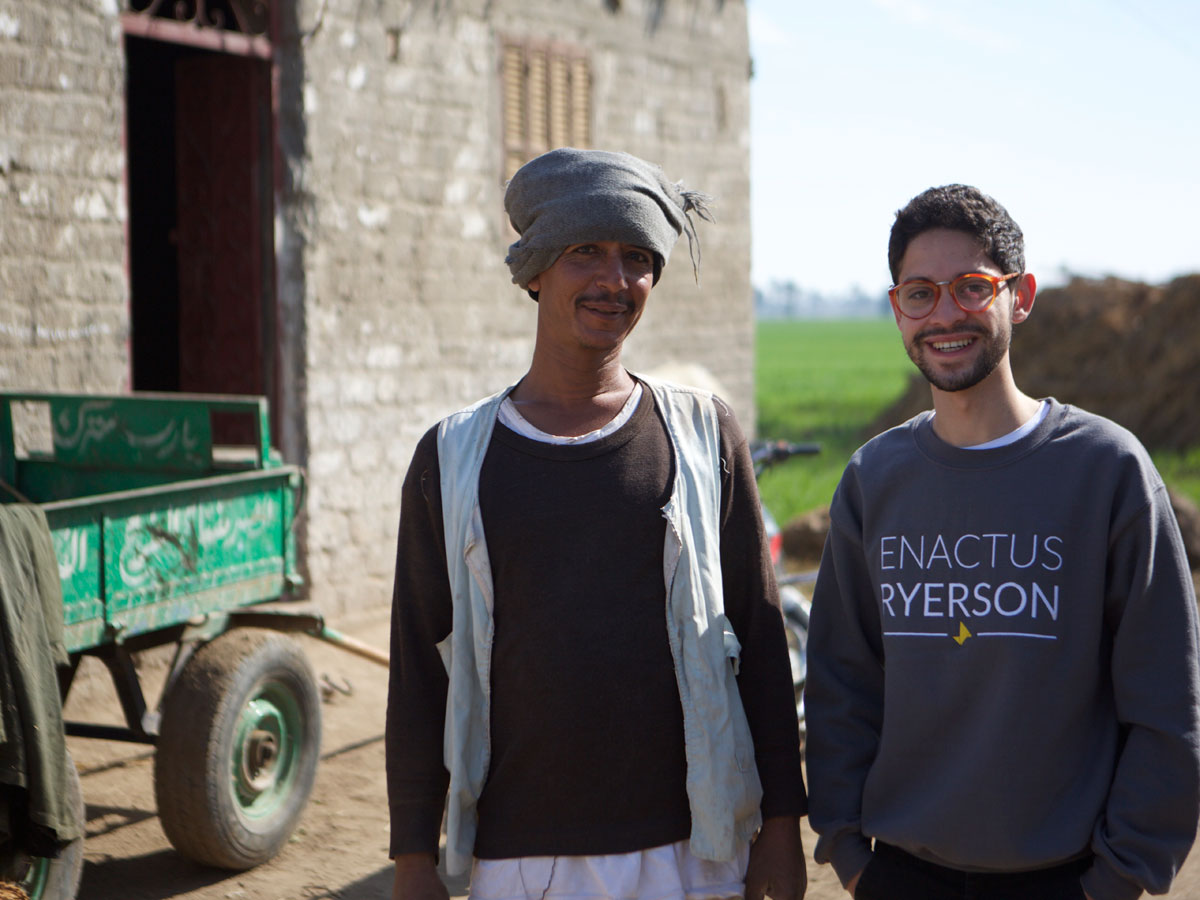An entrepreneurial approach to Egypt’s water crisis

Photo: Ryerson TRSM student Omar El Araby (right) with Farhan, an Egyptian potter who collaborated on the water filtration system with Enactus.
In Egypt, two out of five households do not have access to clean drinking water. This reality hit home for fourth-year entrepreneurship student Omar El Araby in December, when he visited the city of Asyut with Enactus Ryerson (opens in new window) .
“We went to a village in Asyut where people dig 20 metres in the ground to get water,” said El Araby, a student at the Ted Rogers School of Management (opens in new window) . “The water that comes out is highly contaminated with iron, magnesium, sodium—it’s not drinkable. Farmers and their families drink from it, cook from it, shower from it, clean from it, and a farmer we talked to goes to the hospital every month to remove kidney stones.”
Enactus is a worldwide social entrepreneurship network that seeks to provide innovative, sustainable solutions to the world’s problems. El Araby is the leader of Project Myaah (opens in new window) , a new Enactus Ryerson initiative that aims to provide safe drinking water—and a viable revenue stream—to people in Egypt. The team is distributing a mass-produced ceramic water filter system created by local Egyptian artisans, using easily accessible material, for a sustainable solution to the country’s clean-water crisis.
Visiting Egypt in summer 2016, El Araby and the Enactus team (including Benjamin Canning, Mayank Verma, Samar Halawa, and Tania Bawa) investigated the water sanitation problems that are responsible for 13 percent of the country’s childhood deaths. They learned that the collapse of the pottery industry has led to large unemployment, and farmers burning leftover rice husks have increased air pollution. These facts informed the design of their new ceramic filter. The product, comprised of 50 percent clay and 50 percent organic material, helps provide employment for potters and a place for leftover farm materials.
On their second trip in December, the group met with the Egyptian Holding Company for Water and Wastewater, which tested and approved the design. Working with a potter in Asyut, they produced and distributed 30 ceramic filters. Over the next two years, Enactus hopes for 120 families to earn more than 420 Egyptian pounds per year selling the water filter, generating over 1 million litres in clean water.
“The technical skills, business skills, and project management skills that I’ve gained have been enormous,” said El Araby. “But seeing people who do not have access to clean drinking water—which we take for granted here—and knowing that I can help people… there are no words to describe that.”
El Araby, who hails from Egypt, sees this as an opportunity to give back to his home country. “I was privileged enough to come here and study and get a good education from Ryerson, so why not use that to help people who are underprivileged?” he said. “I always set goals for myself, and one of those goals is to help my country. Egypt is still a developing country—statistics show that 25 percent of Egyptians are illiterate. More than 70 percent live under the poverty line. They do not get the necessities: water, food, and shelter.”
For more information, visit Project Myaah (opens in new window) .